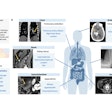Legislative action to address the problematic sustainable growth rate (SGR) formula has heated up recently. On Wednesday, December 11, the House added a three-month SGR patch to its version of the budget bill, and on Thursday, House and Senate committees advanced bills that would replace the SGR altogether.
Also on Thursday, the House passed its budget compromise with a bipartisan vote of 332 to 94. In addition to raising some $85 billion through cuts and fees and spending about $63 billion of that to replace some of the sequester reductions in 2014 and 2015, it delays for three months an SGR-mandated 24% cut to the rates doctors get paid under Medicare.
The Senate will take up the budget bill next week, according to a statement released by the House.
Long-term relief?
On December 12, the U.S. Senate Finance Committee and the House Ways and Means Committee each passed legislation that would replace the broken Medicare SGR formula, although action by the full House and Senate on the bills won't happen until Congress resumes work in January.
"The time has come for the temporary patches and trend of uncertainty to end," said House Ways and Means Committee Chairman Dave Camp (R-MI) in a statement. "Now Congress must move a permanent repeal of the SGR physician payment formula, which will bring security to providers and the millions of seniors who rely on Medicare for their healthcare."
Cuts in Medicare payments are required under the SGR formula, which links Medicare reimbursement rates to increases in the country's gross domestic product. The SGR has mandated cuts every year since 2002, but each year Congress has passed legislation delaying its implementation.
"Every year, Congress has had to spend more time and money to pass temporary fixes," Senate Finance Committee Chairman Max Baucus (D-MT) said in a statement. "Congress has spent $150 billion on these temporary patches. That's more than the current cost of repealing the SGR. Enough is enough. After a decade of Band-Aid solutions, it is time for us to act."
Both versions of the legislation would repeal the SGR update mechanism and tie payments to quality and efficiency; improve the fee-for-service system by streamlining Medicare's existing web of quality programs into one value-based performance program; bolster movement to alternative payment models to encourage doctors and providers to focus more on coordination and prevention to improve quality and reduce costs; and make Medicare more transparent by giving patients and doctors more access to information they can use to improve care, the committees said.
When Congress returns to work in January, Senate and House leaders will need to reconcile the two versions of the legislation and take it to the rest of their members for vote.
"I applaud the progress made today and look forward to working together in the New Year on a final, permanent solution that can pass the full House of Representatives, the Senate, and ultimately be signed into law by the president," said House Energy and Commerce Committee Chairman Fred Upton (R-MI) in the statement.
'Doc fix': Bad for Americans' health?
But not everyone is happy with the proposed bill. In an opinion published online December 12 in the Wall Street Journal, Dr. Scott Gottlieb wrote that the "doc fix" will be bad for Americans' health. Gottlieb has served in various capacities at the Food and Drug Administration (FDA) and as a senior policy adviser at the U.S. Centers for Medicare and Medicaid Services (CMS).
"Imagine if a provision in Obamacare allowed Health and Human Services Secretary Kathleen Sebelius to dictate directly to doctors which services they could and could not provide [to] their patients -- what individual tests they could conduct, which treatments they could offer, and medicines they could prescribe," Gottlieb wrote. "Americans would be outraged."
Yet the "Senate Finance Committee is set to vote on permanent 'doc fix' legislation Thursday that grants the federal government broad new authority to determine 'applicable appropriate use criteria' for the full range of outpatient medical services delivered to seniors," he wrote.
The provisions in the legislation apply to CT and MRI, Gottlieb noted. But there's also language that allows the Secretary of Health and Human Services (HHS) to apply the same appropriate use criteria to an array of outpatient medical care for seniors -- giving Medicare too much control.
"Radiologists (and other medical specialists) struck a bargain with legislators to give them input into the development of these criteria -- one reason doctor groups have rolled over," he wrote. "They see it as a better alternative to price cuts, or more direct controls over their medical practice."
"All of these provisions are written to pertain to imaging services and radiologists," Gottlieb wrote. "But language included at the end of this section of the legislation gives the HHS secretary broad discretion to establish an 'appropriate use program for other Part B services.' This includes everything doctors do outside the hospital."
Gottlieb's take on appropriateness criteria is misguided, according to the Medical Imaging and Technology Alliance (MITA).
"Over the years, Congress and Medicare administrators have tried to enact harmful policies -- indiscriminately cutting payments, blocking coverage of new technologies, and erecting bureaucratic barriers to patient care," said Gail Rodriguez, MITA's executive director, in a statement. "A thoughtful, evidence-based appropriate use criteria policy is a much better approach to guiding medical imaging utilization. Appropriate use criteria empower physicians by providing them with the latest information to help inform the discussion with their patients on what care is best."
The American College of Radiology (ACR) also weighed in on the House and Senate's SGR replacement bills, saying that the legislation would increase quality and preserve resources.
"The ACR strongly supports the imaging provisions in this legislation," said Dr. Paul Ellenbogen, chair of the ACR's Board of Chancellors. "This approach will help medicine transition from volume-based to quality-based care without affecting access or interfering in the doctor-patient relationship."
The bills now await consideration by the full House of Representatives and Senate sometime in early 2014, ACR said.




















